Protect Yourself From Tick Bites and Lyme Disease
From 2019 to 2022, New Jersey had more than 16,000 reported cases of tick-borne disease. Learn about symptoms and how to prevent and treat tick bites.

By Eric Holaday, MD, Infectious Disease Specialist, Virtua Infectious Disease
Planning some spring adventures outdoors? It's also time to think about protecting yourself and your family from ticks.
From 2019 to 2022, New Jersey had more than 16,000 reported cases of tick-borne disease. Lyme disease is the most common tick-borne disease in America. It’s caused by the bacterium Borrelia burgdorferi, which is carried by the black-legged deer tick, commonly found in New Jersey and nearby regions.
People often encounter deer ticks after spending time in heavily wooded areas, but you don't need to be a hiker to be bitten by one. Those with pets should know that a cat or dog can easily bring a tick into the house. This means you should be alert even if you don't spend much time outdoors.
How can I prevent tick bites?
To protect yourself from ticks, spray your skin with an insect repellent that contains DEET or picaridin, or treat your shoes and clothing with a permethrin-based insect repellent. Additionally, wearing long sleeves and pants, a hat, and light-colored clothing can help you spot ticks more easily and make it harder for them to latch onto your skin.
What to do if there's a tick on you
If a tick crawls on you outside and you brush it off, try not to worry too much about Lyme disease. A tick must typically be attached for at least 36 hours to transmit the bacteria. This is why those tick checks are so important!
After spending time in a high-risk environment, check your body and clothes for ticks. If you find a tick attached to you, remove it with tweezers to reduce the risk of contracting Lyme disease.
Remember, ticks are good at hiding. Check your scalp, back, and skin folds, especially the backs of your knees, underarms, and between your legs.
What are the symptoms of Lyme disease?
Early Lyme disease symptoms include:
- The tell-tale "bullseye" rash: A bullseye rash is one of the most recognizable symptoms of Lyme disease. It can start any time from a few days to two weeks after the tick bite. The rash begins as a small spot that expands outward, turning into a red outer ring with a red “bullseye” area at the center. Most people will experience some degree of redness and sensitivity at the site of a tick bite, which may resemble reactions from other insect bites. It's important to note that this rash usually isn't tender to the touch.
- Flu-like symptoms: This can include fever, headache, neck stiffness, nausea and fatigue.
Symptoms of advanced Lyme disease can appear months after infection if left untreated. These include:
- Joint pain with swelling: This often affects large, weight-bearing joints like the knee and hip. It mimics arthritis, except it's usually accompanied by swelling.
- Cranial nerve inflammation: This symptom is less common but usually affects facial nerves, leading to difficulties in facial movements. If you experience this, you should see your doctor right away.
- Encephalitis (brain inflammation) and confusion: Encephalitis can result from an infection or when the immune system attacks the brain. In more severe cases, it can cause confusion, severe headaches, high fever, stiff neck, and other symptoms.
How Lyme disease is treated
Generally, Lyme disease is easily treated with 10-14 days of oral antibiotics. Depending on the type of Lyme disease and the area of the body affected, this will determine how long you're treated and whether you require intravenous versus oral antibiotics for a longer course.
If you’re bitten by a deer tick, talk to your doctor, as taking a single dose of doxycycline shortly after the bite can help prevent Lyme disease.
If you're not feeling any better after two to three weeks of oral antibiotics, there's a good chance you don't have Lyme. In this case, continuing to take doxycycline likely won't help, and other diseases should be ruled out with the expert guidance of an infectious disease specialist.
What to know about other tick-related diseases
The same tick that carries Lyme disease can also transmit other diseases, including:
- Ehrlichiosis and anaplasma can cause a flu-like illness that may be mild or cause symptoms such as headache, chills, fever, rash, and fatigue. These symptoms can develop for up to two months after the tick bite. Like Lyme disease, this is treatable with the oral antibiotic doxycycline, but you should see your physician.
- Babesiosis can cause symptoms for one to six weeks after a tick bite. These include fatigue, fever, joint aches, and abdominal pain. People at risk for severe disease include those who have had their spleen removed, are over age 50, are on immunosuppressive drugs, or have HIV. This is usually treated with a combination of antibiotics.
- Alpha-gal syndrome is technically an allergy, not an infection, but some individuals may develop an allergy to red meat after a tick bite. People usually experience hives, itching, and swelling after eating beef, pork, or other meat from mammals. This can be diagnosed by a blood test.
- Powassan virus is spread by ticks that also carry Lyme disease and can infect people of all ages. Common symptoms include fever, headache, muscle aches, and a mild rash. Currently, there’s no antibiotic treatment or vaccine for this virus. If you think a tick has bitten you or someone in your family and you have these symptoms, especially if you experience a change in mental status, please go to the nearest emergency room for evaluation.
- Other tick-borne diseases: Despite our location in the Northeast, we've seen Rocky Mountain spotted fever. This disease is characterized by fever, muscle aches, headache, and rash. Other illnesses include the Heartland virus and tick-borne relapsing fever caused by Borrelia miyamotoi,which exhibit symptoms similar to those of other tick-borne diseases. As always, it’s essential to consult your primary care doctor. They can refer you to an infectious disease specialist for further evaluation if necessary.
If a tick has bitten you and you have the above symptoms and risk factors, you should speak to your primary care provider.
Get expert treatment for tick-related illness at Virtua
- Call 856-247-7730 to schedule an appointment with a Virtua infectious disease doctor.
There's So Much More to Explore
Discover expert insights, inspiring stories, health tips, and more by exploring the content below!

At-Home Colon Cancer Tests vs. Colonoscopy: Which Screening Option Is Right for You?

10 Hand Washing Tips to Keep You Healthy All Year

8 Signs It's Time to See a Gastroenterologist

How the Unique Stages of a Woman's Heart Affect Her Health

Cervical Cancer Screening Guidelines: What You Need to Know

HeartTalk Magazine

How to Spot the Early Signs and Symptoms of a Stroke

How Weight-Loss Surgery Can Improve Diabetes, Heart Health, and More

How to Achieve Your Health Goals This Year

Knee Replacement Rehab: 7 Exercises to Restore Your Strength and Range of Motion

COPD vs. Asthma: Understanding the Difference in Symptoms

Caregiving During the Holidays: Ways to Manage Stress and Find Joy

Bioidentical Hormone Replacement Therapy Pellets: Relief for Menopause and Andropause Symptoms

Why Is Sex Painful During Pregnancy? Pelvic Congestion Syndrome Explained

COVID-19 Vaccines and Pregnancy: FAQs

Don't Drink Alcohol? You Could Still Get Fatty Liver Disease

What Is the Difference Between Palliative Care and Hospice Care?

How to Exercise Safely with Asthma: Tips, Triggers, and Rescue Inhaler Use

How to Relieve Bloating Fast: Simple Tips for Quick Comfort

COMFORTing Tips to Avoid Holiday Heartburn
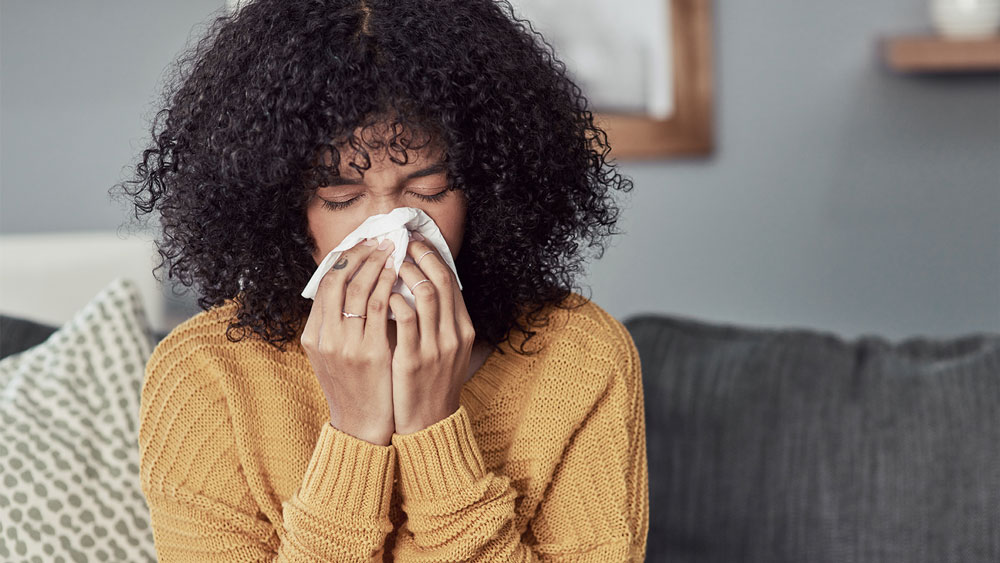
How to Tell the Difference Between Cold, Flu, and COVID-19

Jill Travels From Delaware to South Jersey for Advanced Lung Care

4 Exercise Tips to Help You Reverse High Blood Pressure

From Exhaustion to Empowerment: Tracy's Hormone Replacement Therapy Success Story

Why on Earth Am I Always So Cold?

Daily Wellness Checklist: Simple Habits for Feeling Good Inside and Out

Timely Heart Care During a Heart Attack Helps Joe Feed the Community

Allegra Is Thriving With Crohn's Disease

The Best and Worst Foods for Acid Reflux

How to Manage IBS Symptoms and Feel in Control Again

5 Types of Lung Disease: Symptoms, Causes, and Prevention Tips

Foods to Enjoy and Avoid for GLP-1 Heartburn

3 Reasons Why Now's the Time to Find Relief From Varicose Veins

Baseball Coach Turns Male Breast Cancer Surprise into Personal Mission

The Brain Health Checklist: 11 Questions Everyone Should Ask

From Caregiver to Patient: Robotic Surgery Relieves Teresa's Knee Pain

How to Get and Stay Healthy This Fall

How to Reverse Prediabetes and Prevent Type 2 Diabetes

6 Ways to Get More Out of Your Daily Walk

Young Breast-Cancer Survivor Has New Hope for Healthy Future

Is Cancer Hereditary? What You Need to Know About Your Genetic Risks

Tara's Story: From Debilitating Uterine Fibroid Pain to a Half-Marathon Medal

Is Your Post-Pregnancy Belly Bulge a Sign of Diastasis Recti?

Your Guide to Mammograms: When to Get Screened and What to Know

The Top 10 Foods That Boost Your Brain Health

Is It Safe to Exercise During Pregnancy?

Prevent Yard Work Injuries: Tips for Mowing, Gardening, and Raking

Where To Seek Mental Health Help And Treatment

How to Curb Nighttime Snack Cravings

Is Your Daily Walk Making You Really Sore?

IBS and Alcohol: Can You Still Enjoy a Drink?

Focus on Mental Health Is Key Part of Andrew's Weight-Loss Journey

What You Need to Know About Epilepsy

'Feeling Joy Again': ECT Brain Stimulation Therapy Restores Ashley's Well-Being

Not Just for Wrinkles: Botox Injections Promote Improved Bladder Control

Easy, Healthy Lunch Ideas for the Beach

How to Stay Cool and Prevent Heat Illness All Summer Long
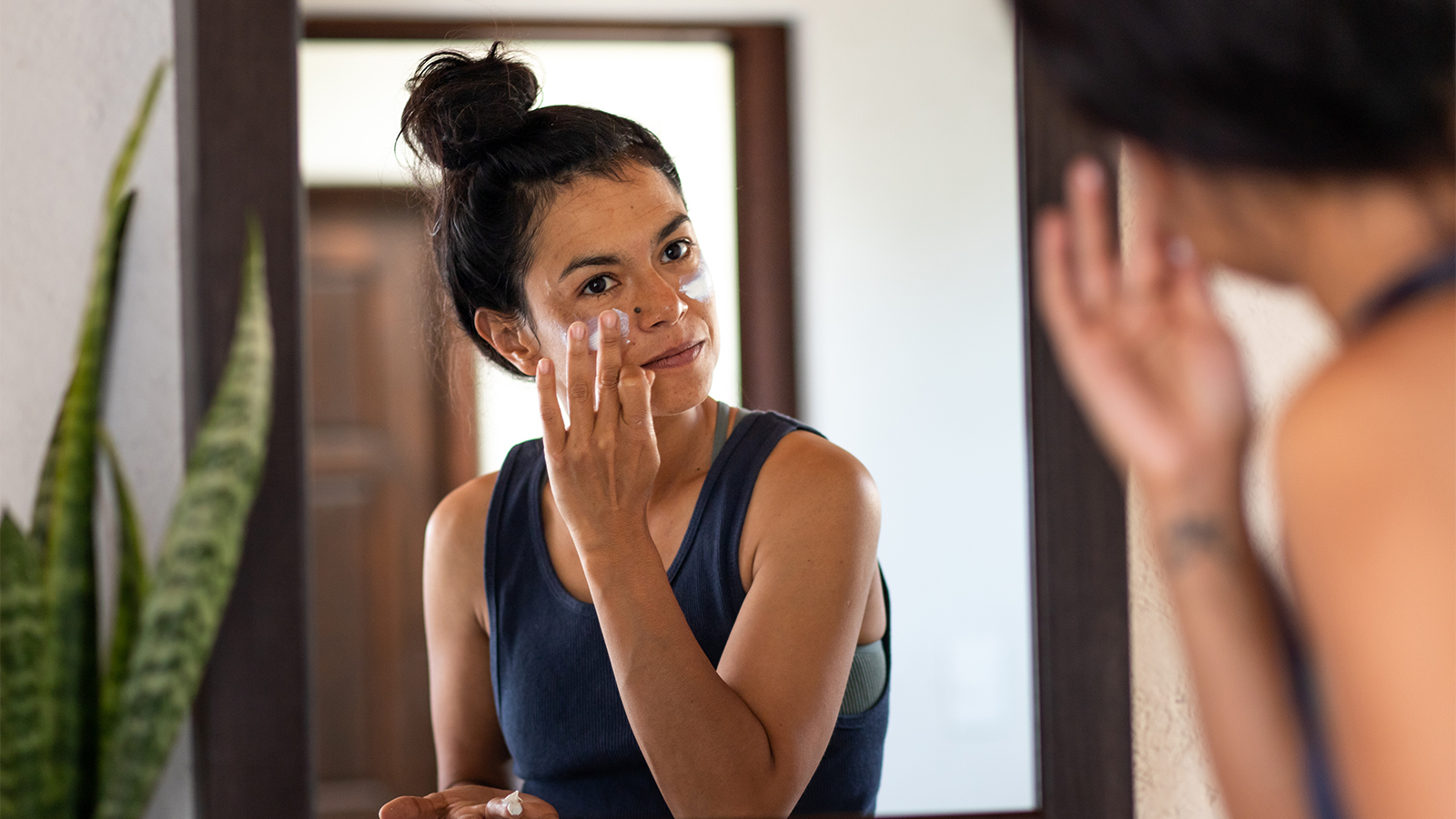
Do Not Get Burned by These Sunscreen Myths

Beat the Bugs and Save Your Summer

What Happens to Your Body When You Don't Get Enough Sleep?

How to Have a Healthy Pregnancy if You're Overweight

Why You Get Sick on Vacation (and How to Stay Healthy While Traveling)

6 Hot Tips for a Safer Summer

4 Surprising Health Truths You Should Know

5 Interesting Facts About Your Heart

Is Low Sex Drive Normal? Revealing the Complex Causes of Low Libido in Women

5 Feel-Good Activities to Explore Around South Jersey

Stress Incontinence vs. Urge Incontinence: What's the Difference?

5 Key Facts About Proton Therapy for Cancer Treatment

3 Changes You Can Make Today to Lower Your Cancer Risk
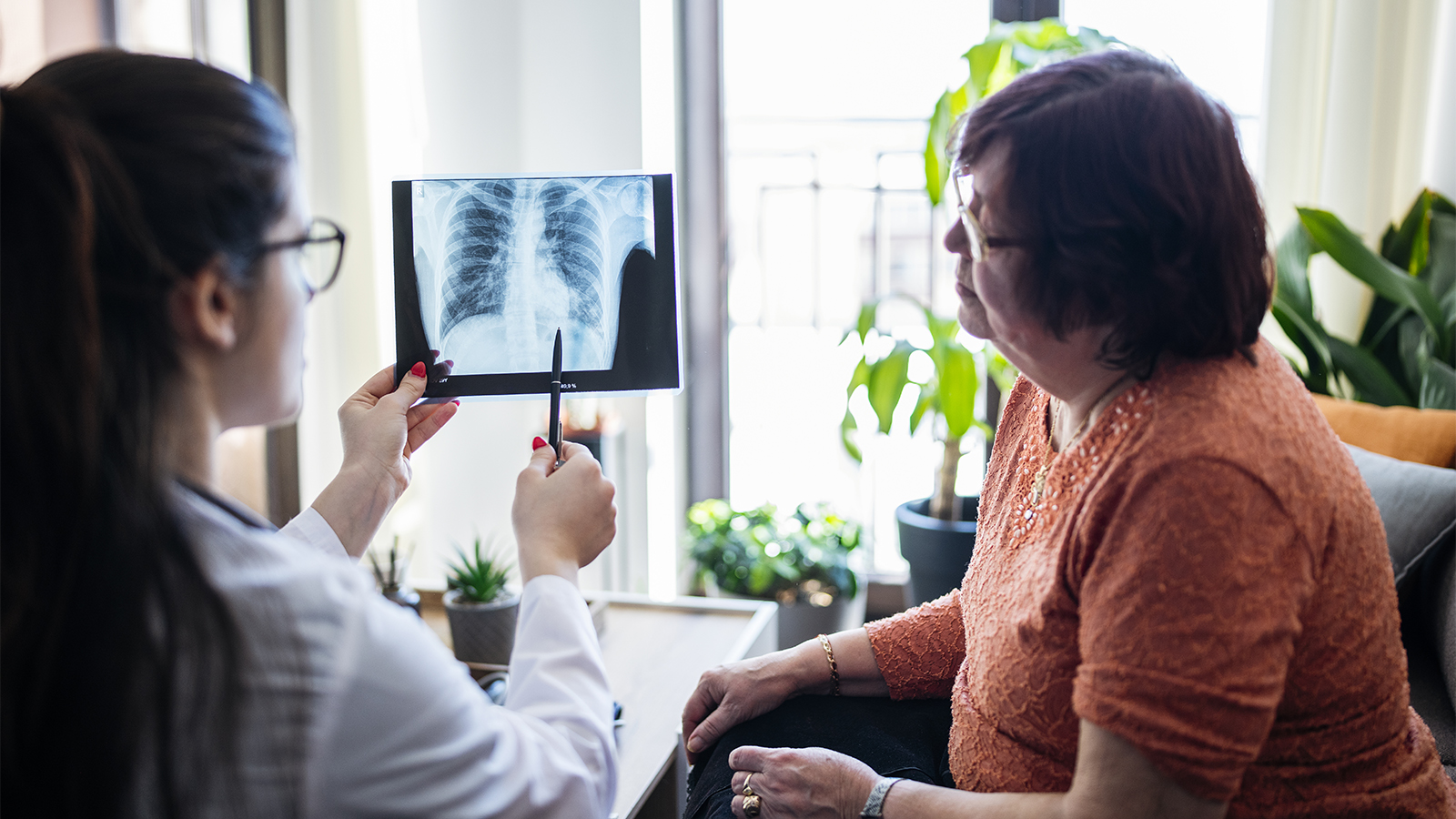
A Lung Cancer Screening Could Save Your Life

Mood Swings vs. Mood Disorders: Know the Signs and Get Help
Are emotional ups and downs disrupting daily life? Learn common signs of mood disorders, and when to talk to a doctor about diagnosis and treatment options.

Take Pride in our Health: Must Dos for LGBTQ+ Preventative Care

4 Foolproof Pelvic Floor Strengthening Exercises for Women

What to Expect During Perimenopause

Protect Yourself From Tick Bites and Lyme Disease

10 Quick Ways to De-Stress

4 Ways to Stay Fit and Healthy on a Budget

6 Tips to Tame Your Spring Allergies

Do You Know the Signs and Symptoms of Uterine Fibroids?

How Are Uterine Fibroids Treated?

From Restless to Restful: How Movement Improves Sleep

5 Simple Ways to Spring Clean Your Wellness Routine

How Do You Manage the Side Effects of Weight-Loss Medications?

A Woman’s Four-Step Guide to Fight Back on Back Pain

What You Need To Know About Carpal Tunnel Syndrome

The Truth About Menopause, Weight Gain, and Belly Fat

Shedding Light on Lesser-Known Menopause Symptoms and Solutions

Debunking The Myths About Vaginal Dryness
Inside Look at Blood Vessels Aids PAD Treatment
Denise Davis: Pay Attention to Your Heart Health

What You Need To Know About Stroke Treatment

Best Foods for Kidney Health

10 Smart Ways to Manage Your Diabetes

What Causes Food Addiction And What Are The Signs
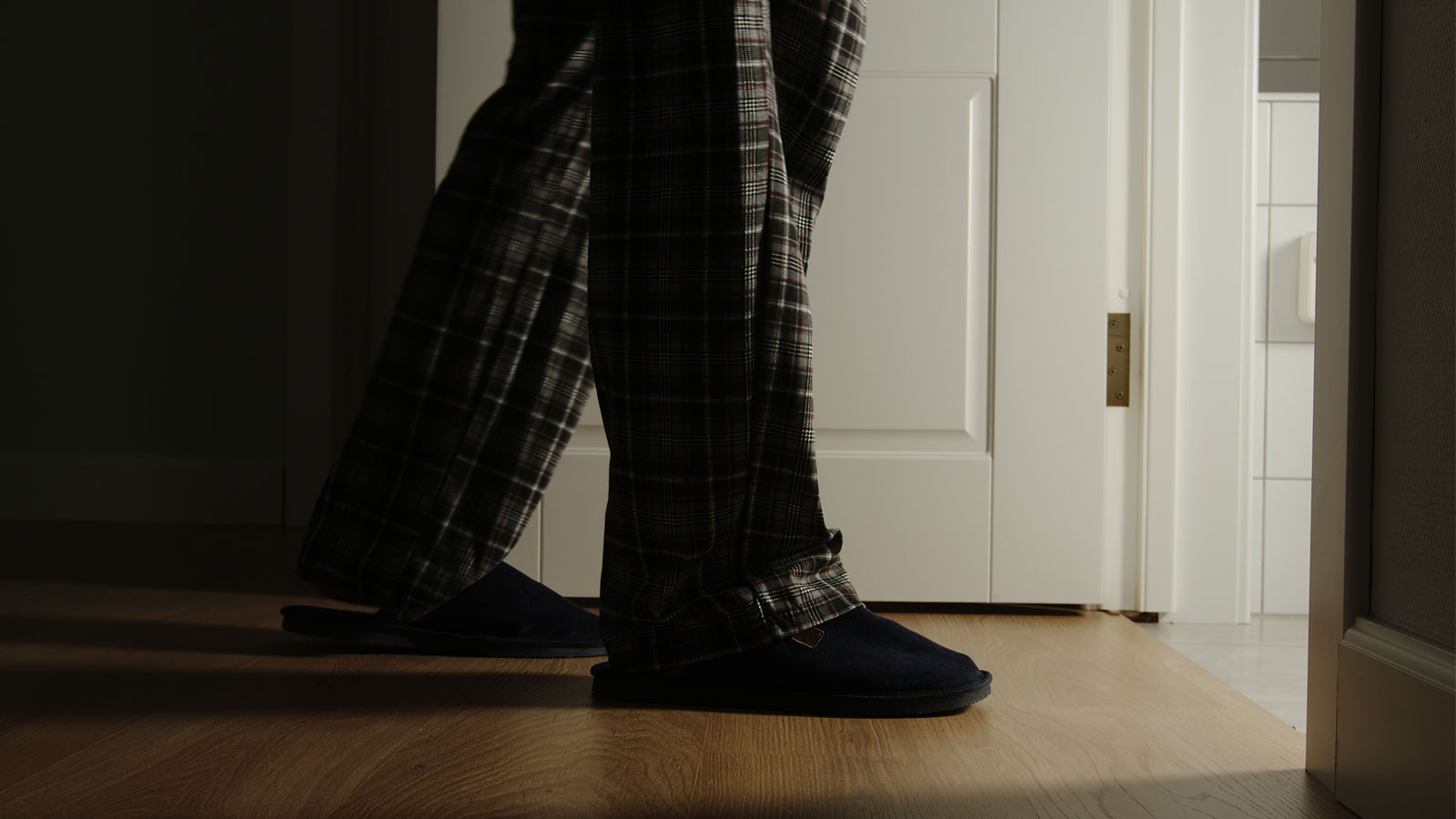
Signs You May Have Chronic Kidney Disease

5 Essential Winter Foot Care Tips When You Have Diabetes

Sweet Music: Trust, Teamwork Save Justin from Heart Attack

Complex Heart Surgery Nets James a Lifelong Friend

Your 10-Point Plan to Avoid Winter Weight Gain
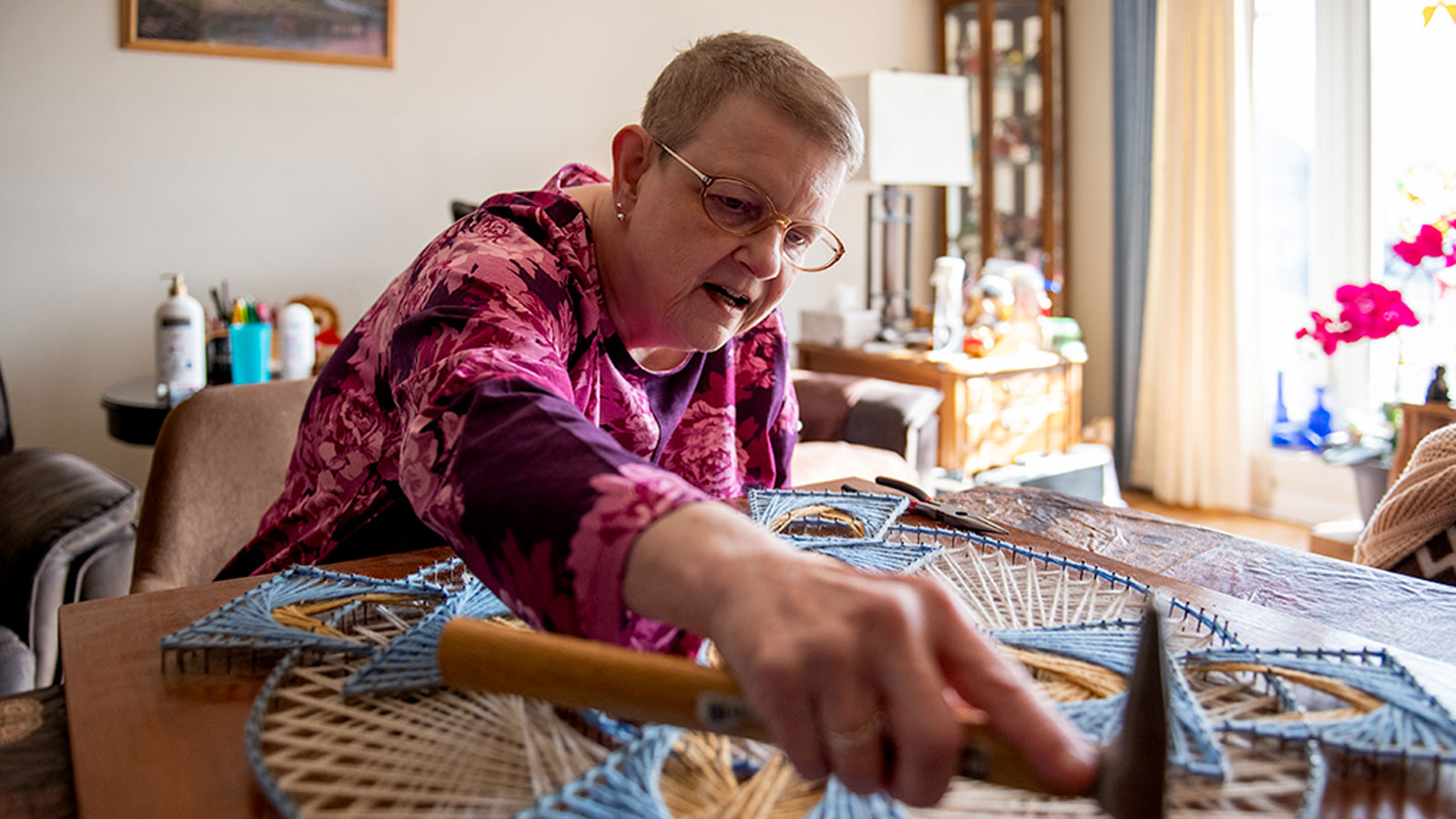
Hepatitis C Kidney Transplant a Blessing For Lee Manns

7 Reasons Why You Want Your Surgeon to Be an Expert in Robotics

Colitis Symptoms Under Control, Jennifer Is ‘Living My Best Life’

How Do I Care for a Wound that Won't Heal?

Surprising Symptoms May Signal Stroke In Women

8 Key Steps to Better Blood Pressure Control

Five Back Pain Risk Factors That You Should Know

Is My Back Pain Normal, or Is It Spinal Stenosis?

Augmented-Reality Surgery Has Bobby Back on Stage, Rocking His New Hip

Robotic Hernia Surgery Combines Innovative Techniques With Faster Recovery Times

5 Back Stretches for the Work-From-Home Workweek

The HPV Vaccine: A Powerful Shield Against Cervical Cancer

How Does Breast Density Affect Your Mammogram?

Menopause: New Insights Into the Power of Hormone Replacement Therapy

How to Prevent and Treat Urinary Tract Infections

Signs You Should Get Treated For Vein Problems

One New Heart Valve Saves Two Lives in the Tritten Family

What You Need to Know About Heart Failure

6 Numbers Key to Keeping Your Heart Healthy
Lung Valve Surgery Relieves COPD, Emphysema Symptoms

4 Easy Ways to Treat and Prevent Runner's Knee

Lung Screening, Robotic Technologies Get Pat Kicking Up Her Boots Again

Breast Cancer Diagnosis Inspires Catherine to Help Others

Jasmine’s On-Air and Pain-Free After Gallbladder Surgery
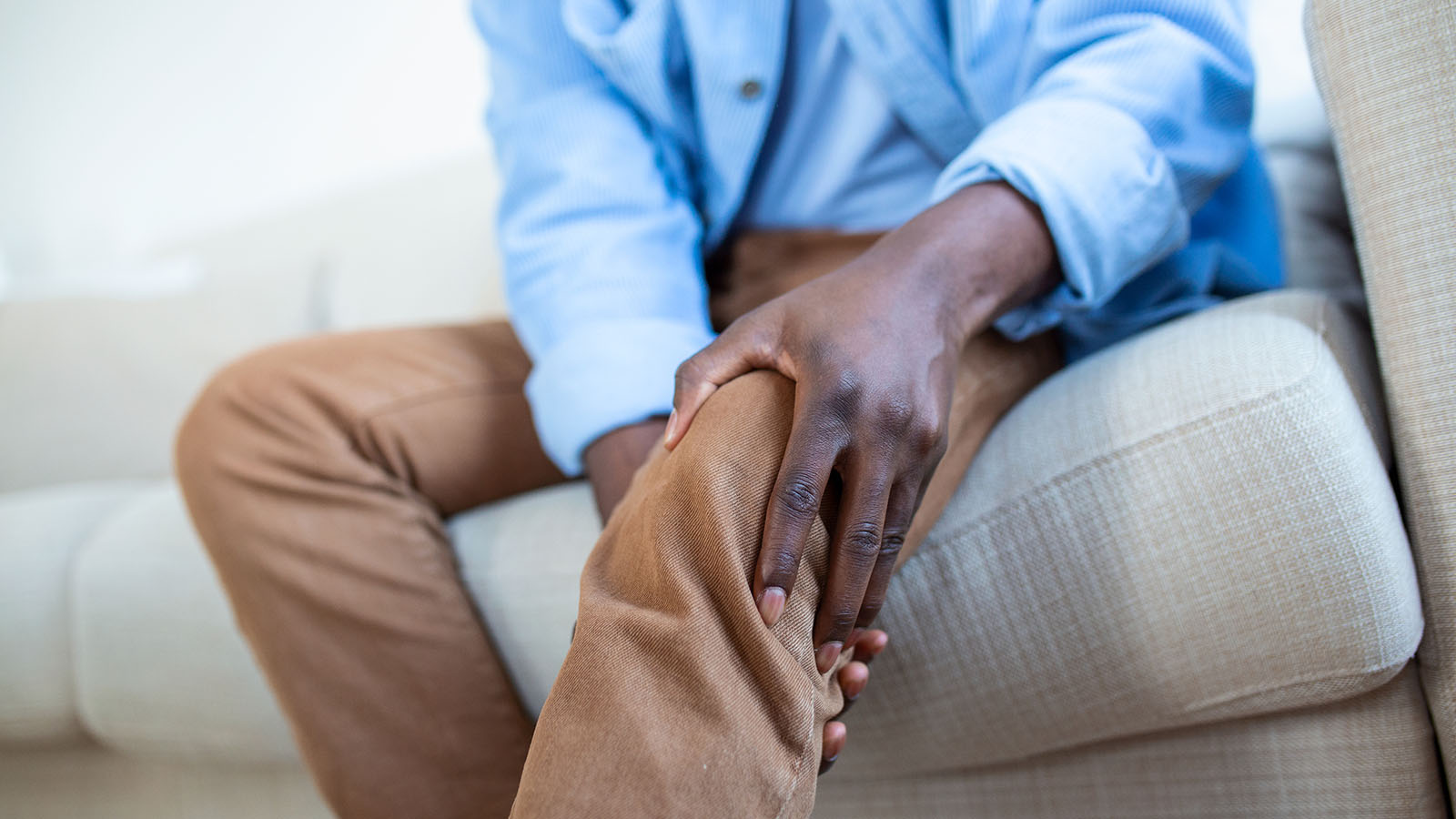
When Should I See a Doctor About My Knee Pain?

Quick Action Leads to Jesse's Recovery From Stroke

A Non-Athlete’s Guide to Shoulder Overuse Injuries
Shoulder problems aren’t limited to athletes. Virtua orthopedic surgeon Sean McMillan, DO, explains shoulder overuse injuries and prevention in this article.

Put Lower Back Pain Behind You With This Ten-Step Guide

Wide-Awake Hand Surgery Speeds Recovery, Puts Control in Patients' Hands

South Jersey Veteran Thrives After Cross-Country Kidney Donation

Five Mindfulness Tips That Can Help Heal Your Heart
Working from Home? Take a Quick Break to Stretch Your Wrists

3 Ways to Avoid Knee Pain

When Should I See a Doctor for My Hip Pain?

When Should I See a Doctor About My Shoulder Pain?

Is My Back Pain Normal, or Is It Sciatica?

Is My Back Pain Normal, or Is It a Herniated Disk?

When Is It Back Pain, and When Is It Something More?

Watchman Heart Device: a Technological Breakthrough for Blood Clot Prevention

Albert's Emergency Cardiac Surgery Is a 'Story of a Lifetime'

What Can I Do Right Now About My Aching Back?

How Do I Get Rid of This Back Pain for Good?

Love Your Heart: Essential Care Tips for Every Stage of Life

How Do I Measure My Blood Pressure at Home?

How Do I Improve My Cholesterol Levels?

3 Ways to Reduce Your Stroke Risk

Can Your Gut Health Affect Your Heart?

When Should I Be Worried About My Neck Pain?
Advanced Heart Failure Therapies Get Bernadine Back to Full Speed

Sarah Wins Back Her Health After Crohn's Disease Diagnosis

Overcoming Addiction, Philip Now Sees More Positive Side to Life
Firefighter's Successful Lung Cancer Care at Virtua
A Lung Screening Put Teresa Back in the Race

A Breast Self-Exam Saved Kristen's Life

How Sex Keeps You Healthy as You Age

Protect Your Child From HPV and Related Cancers

Why IUDs Might Be The Most Effective Birth Control

5 Things You're Too Embarrassed to Tell Your OBGYN

4 Not-So-Crazy Questions to Ask Your Doctor

Early Treatment is Best to Relieve Hemorrhoid Symptoms

The Top 10 Foods For A Healthy Diabetes Diet

Keeping the Beat: Advanced Heart Surgery for Aortic Aneurysm
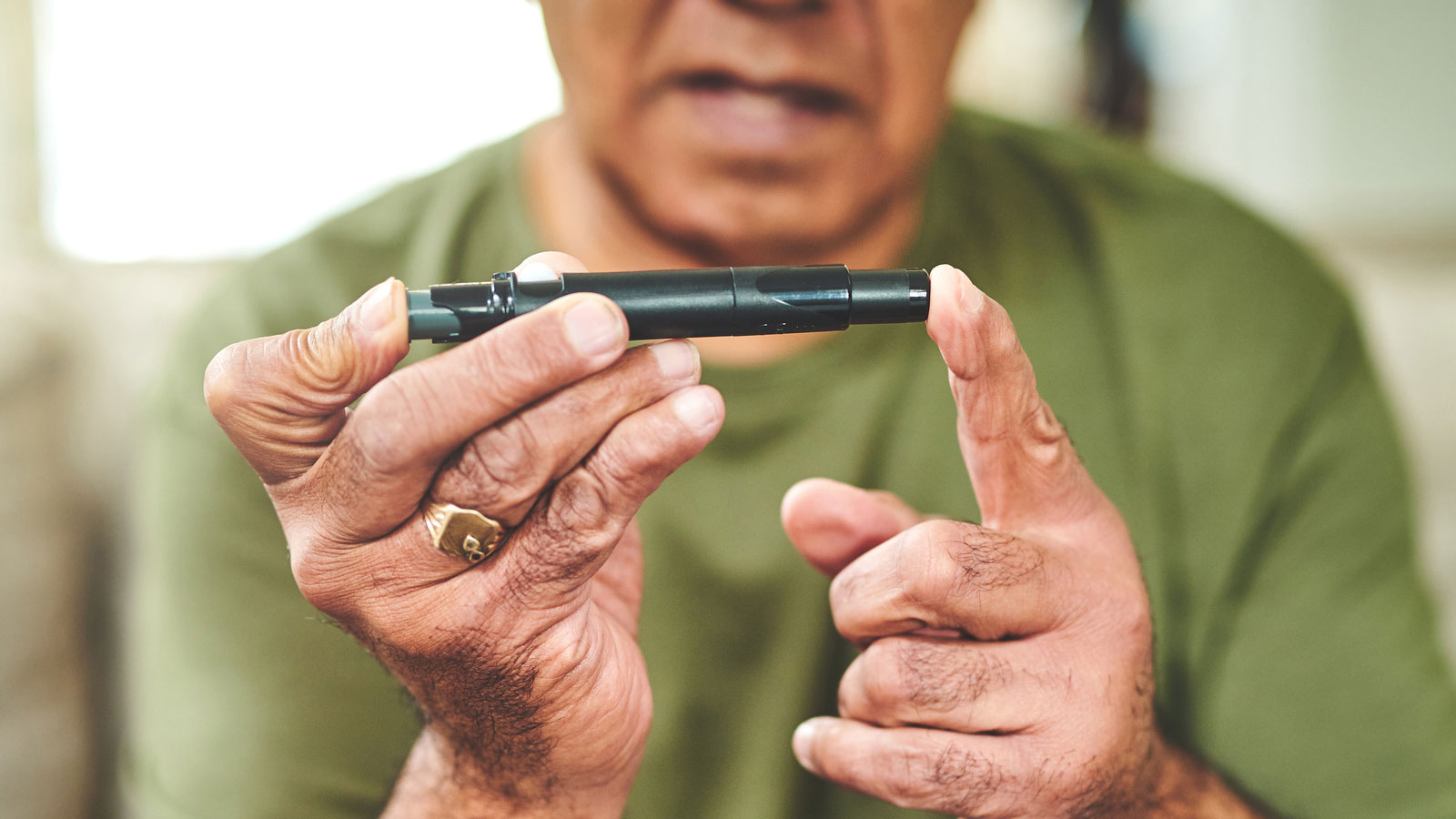
Are You At Risk For Chronic Kidney Disease

Local Pastor Makes Kidney Health Mission of Ministry

What’s the Difference Between Type 1 and Type 2 Diabetes?

All for Bear: Dan Loses Weight to Be His Son’s Kidney Donor

Forget Dieting: Find Your Eating Pattern

Hyperbaric Wound Therapy Puts Joette Back in Motion

Robotic Hernia Repair Renews David's Active Lifestyle

